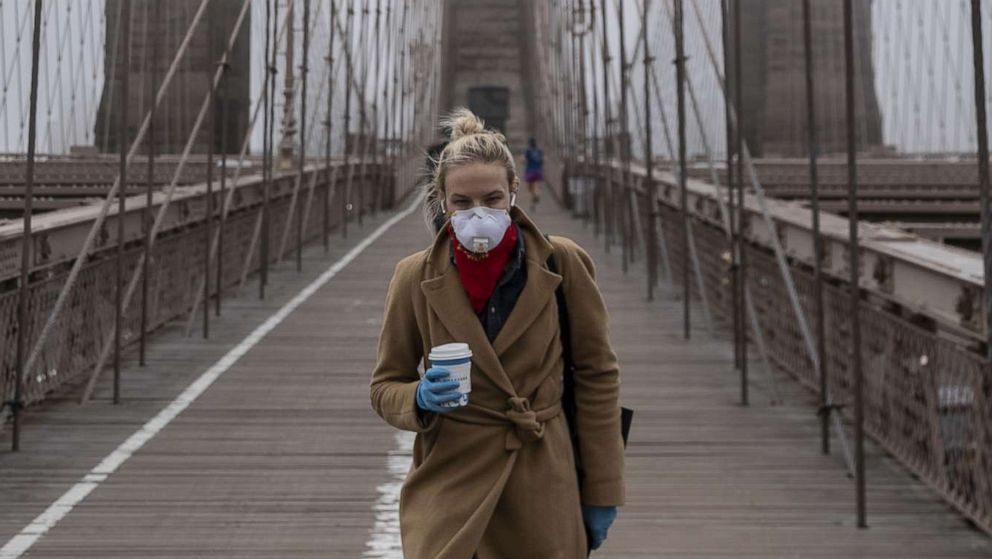Anxiety and depression likely to spike among Americans as coronavirus pandemic spreads
New York Gov. Andrew Cuomo recently announced that New York State plans to set up a free mental health service in which people can speak to mental health professionals about the emotional toll of the COVID-19 crisis.
Cuomo called on mental health professionals to consider donating their time to conduct free sessions over the phone or via video for patients in need of mental health counseling.
Mental health problems such as anxiety and depression are likely to spike among Americans in the coming weeks because of the uncertainty created by the pandemic.
COVID-19 has evoked fear in our lives in a way that hasn't been felt since the 9/11 terrorist attack. The sight of empty grocery store shelves, streets void of pedestrians, overflowing emergency rooms and thousands sequestered at home paints a picture of our new reality. Empty store shelves alone can be deeply distressing for many who fear that food supplies will run out, triggering all sorts of negative emotions.
Stress, anxiety and depression are normal and expected in the context of this pandemic. Experts, however, are particularly worried about people who are predisposed to depression and anxiety. The unique and unprecedented threat of COVID-19 has exacerbated anxiety, depression and potential for hysteria in our most vulnerable -- the mentally ill.
Psychologists describe fear as an expected response to a known threat, such as the seasonal flu, while anxiety is a response to a vague threat.
Dr. Alexander Sanchez, a psychiatrist working in New York City, told ABC News, “This is a new challenge and the most worrying aspect is the uncertainty."
At this time, nearly 7 million people in the U.S. are affected by generalized anxiety disorder and about 6 million with panic disorder. These numbers are expected to go up in the next few months.
“I expect an increase in anxiety and depressive symptoms to come when the experience of social distancing and isolation becomes more routine, Sanchez said. “We are trying to adjust to a new way of maintaining social connections virtually. There will be some psychic pain while we adjust."
When asked to pinpoint the primary root of anxiety, Dr. Armando Gonzalez, also known as Dr. Mondo, who a licensed marriage and family therapist practicing in Sacramento, California, told ABC News: “There's no doubt uncertainty is always the lynchpin to anxiety and panic."
He added, "In addition to panic around catching the virus or passing it on, the financial impact has become a cause for panic too."
Small businesses are struggling to stay afloat and many workers are not able to perform their jobs under current shelter-in-place orders. The mounting unknowns, mixed with the financial crisis that is sure to ensue, is at the root of a rise in anxiety, Mondo said.
Moreover, experts say obsessive compulsive disorder (OCD) will also be on the rise.
Cleaning and washing compulsions are two features of OCD, which can easily be exacerbated by the threat of infection. Mental health professions in psychiatry, primary care and even dermatology should be alerted to potential issues in patients with OCD.
In addition, the current outbreak may exacerbate psychosis-like symptoms as well as lead to non-specific mental issues (e.g., mood and sleep disturbances, phobias and panic-like symptoms).
The Centers for Disease Control and Prevention says anxiety and depression may worsen for people who are most susceptible to COVID-19, such as older individuals and those with chronic diseases.
“The elderly are more anxious because of their risk factors in regards to catching the virus," according to Mondo.
For other age groups, there's a level of heightened stress and uncertainty around when this might end and the financial impact it will have, Mondo noted.
As more people are asked to stay at home and self-quarantine, feelings of loneliness and isolation will be common. But experts say there are several strategies that may help people cope.
The National Alliance of Mental Illness (NAMI) recommends maintaining a sense of normality and routine that mirrors life’s daily patterns and practices. Structure and routine are helpful for people with mental health vulnerabilities, especially during times of uncertainty.
NAMI says to maintain a regular routine and keep up with morning rituals. Dressing in regular work attire and taking regular breaks are important. If working from home, NAMI encourages creating a structured, dedicated work environment and building in self-care as well as daily benchmarks of achievement.
“We are social creatures, we need each other. The creativity we have used to connect virtually is cause for hope, but at the end of the day, virtual meetings are still synthetic connection," said Mondo.
With the inevitable rise in mental health problems in the coming weeks, states are relying on tele-health to meet the mental health needs of the population.
“The health care world is working to expand tele-health at a breakneck pace to meet the needs of the community," said Sanchez. “It helps reduce the unnecessary use of personal protective equipment by health care workers and prevent the transmission of disease to patients in office waiting rooms or public transit."
The New York State Psychiatric Association is working with Gov. Cuomo to encourage participation in free tele-health services.
“We need to remember that this is temporary -- we have been challenged before and have met and exceeded those challenges as a society," said Sanchez.
Complete a survey at health.ny.gov/assistance for mental health services.
For mental health crisis, Call the NAMI HelpLine at 800-950-NAMI (6264) Monday through Friday, between 10:00 am and 6:00 pm EST for mental health resources.
Visit NAMI.org for additional information on how to seek mental health help.
If you are a loved one is experiencing suicidal thoughts in response to the outbreak, call The National Suicide Prevention Lifeline at 1-800-273-8255 for free and confidential emotional support 24 hours a day, 7 days a week.
Yalda Safai MD, MPH, is a psychiatry resident in New York City and contributor to ABC News Medical Unit.




